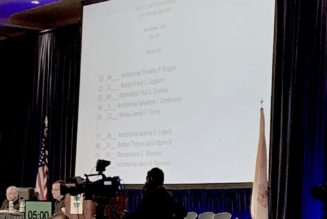 |
Rod Dreher’s book The Benedict Option advocates a simple response to modernity: retreat, re-arm, and renew. Basing his battle plan on that of the sixth century founder of Western monasticism, Dreher argued that, just as St. Benedict abandoned the decadence of a declining Roman Empire, so Christians today should respond to a society crumbling into decadence by pulling back, circling the wagons, and looking to preserve Christian culture in enclaves of community, commitment, and a common life in Christ.
Dreher was criticized for being defeatist, idealistic, and overly negative. However, many of his critics clearly had not read his book. He was never calling for all of us to head for the hills, grow beards, raise chickens, and build little chapels where we gather to recite the rosary and wait for doomsday. Instead, his vision was simply the response of the Christian church engaged in the perennial question of the right relationship between Christ’s kingdom and the kingdom of this world.
In various epochs in Church history, Christians have faced the same challenge: do we fight the prevailing godless culture or do we accommodate the spirit of the age—adapting the faith to the zeitgeist? The third way has always been neither to fight nor to accommodate but to live out a radical Christian witness within the world. This third way has been the apostolic way, the way of the great missionaries, martyrs, and saints: They were in the world but not of the world.
Dreher simply picked up one aspect of this way: the need to pull back from acceptance and integration with the way of the world and to intentionally lead a different kind of life—one that focuses on family, faith, and fellowship. If there was a weakness to Dreher’s argument, it was that it lacked a solid theological premise. That fault has been rectified by a new book by young theologian Joshua Brumfield.
The Benedict Proposal—Church as Creative Minority in the Thought of Pope Benedict XVI adds the theological insights of Pope Benedict to the practical rule of St. Benedict. Brumfield explores Ratzinger’s Trinitarian theology as it links to his ecclesiology and thoughts on mission and the Eucharist.
He quotes the German theologian: “We need men like Benedict of Nursia, who, in an age if dissipation and decadence, immersed himself in uttermost solitude. Then after all the purification he had to undergo, he succeeded in rising again to the light…from which he assembled the forces from which a new world was formed.”
Likening the cultural forces of modernity to a riptide, Brumfield points out that one dare not attempt to swim against the riptide. To be saved, one swims perpendicular to the tide and so escapes the deadly current.
Brumfield echoes Ratzinger’s call for Christians to become a “creative minority” in the world—a remnant of a Christian society that retains the vitality and radical discipleship of the early church. This “creative minority” is a community rooted in the unity of the Trinity as expressed in the Eucharist in order to be the resurrected body of Christ in the world.
Swimming perpendicular to the riptide means going against the instinct and doing something that seems daring, but which, in hindsight, will prove to have been common sense. Individuals and families cannot take this sideways step to become Pope Benedict’s “creative minorities” on their own. Instead, they join with others in communities of faith, structuring their lives by the principles within the essence of the Benedictine vows of stability, obedience, and conversion of life. These are put in gear through the three Benedictine “tools” of prayer, work, and study. Brumfield uses the new ecclesial communities like Focolare as examples of the “creative minorities.”
The problem is that too often the new ecclesial communities are victims of all idealistic enterprises. Corruption creeps in. Self-righteousness and spiritual superiority can infect the community and their very unusualness becomes their worst enemy. The danger is that of weirdness. They are so “heavenly minded that they’re no earthly good.” A more down to earth and ordinary way is for the local parish to become the creative minority that Pope Benedict calls for.
For this to happen, renewal takes place within the ordinary parish. But we have found that along with renewal is another phenomenon—people moving to an area specifically to belong to the vibrant Catholic community that already exists in that place.
The headmaster of our parish school has coined a term for swimming across the riptide and moving to a parish where a family can be part of this wider movement. Relocatiō is to relocate not just for better house prices or a job promotion, but to seek out an environment, parish, school, and Catholic community where others are striving to live out the radical commitment that evangelizes by a blend of reverent worship, social engagement, community commitment, and vibrant classical Catholic education.
Greenville, South Carolina, is one area of the country where an increasing number of families are moving. With a buoyant job market, an attractive climate, and a strong, traditional Catholic community, in these difficult times people are not heading to the hills, but to the foothills of Upstate South Carolina.
This is not a fearful and pessimistic retreat from the world, but rather an intentional choice to belong to a sympathetic community where a traditional Catholic faith is practiced with optimism and a positive spirit. Instead of being viewed as an idealistic escape, it is a positive engagement. It is swimming across the riptide—not against it.
[Image Credit: Public Domain]
Join Our Telegram Group : Salvation & Prosperity










